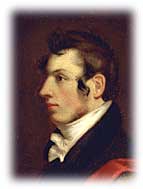 |
Who Yale HonorsBerkeley
College |
Morse College Samuel F. B. Morse was much more than an inventor. In 1835, he launched a bid to become the mayor of New York City on the "Nativist" ticket, a growing anti-immigrant and anti-Catholic movement of the time. His published views at the time opposed "outside agitation" against southern slavery (158). Although he lost his bid for mayor, thirty years later, in the midst of the U.S. Civil War, his views appear only to have become stronger. By the mid-1860s, Morse had become a nationally known Northern activist who supported slavery as a positive good that should be extended throughout the country. He published pro-slavery tracts in which he describes slavery as beautiful and as a source of salvation: (159)
Samuel F. B. Morse defended the institution of slavery without compromise as part of God's ordained plan that must not be opposed or even criticized:
Samuel F. B. Morse did not stop simply with a defense of slavery as desirable. He argued that it is sinful to oppose slavery, and he recommended that churches excommunicate anyone who commits the sacrilege of promoting the abolition of slavery:
Morse went even further. Not only is slavery a divine institution, and not only is the attempt to abolish slavery a sacrilegious and sinful endeavor, but all of the blame for any and every problem arising from slavery can be laid squarely at the feet of the abolitionist:
Morse was elected president of two pro-slavery organizations. The American Society for the Promotion of National Unity officially "thanked God that four million beings, incapable of self-care, were entrusted to Southerners." After Lincoln's Emancipation Proclamation, they founded, with Morse as first president, the Society for the Diffusion of Political Knowledge. The Society's inception was publicly attacked (167). Morse authored one of this society's first publications, in which he launched an attack on President Lincoln:
Like John C. Calhoun, Samuel Morse's commitment to slavery led him ultimately to denounce democracy. He disparaged the Declaration of Independence as a "mixture of truths, qualified truths, and fallacious maxims" (169), and he understood the "abolition Baal" as an outgrowth of the French revolution, which he describes as "poisonous seeds sown for long years by a proud, God-defying infidelity in France" (170). For Morse, too much democracy was poison. Together with John C. Calhoun, Samuel F. B. Morse was lauded by the special tercentennial issue of the Yale Alumni Magazine for being among the top graduates from Yale's entire 300-year tradition. The article mentions that "in 1836, [Morse] even tried politics, but lost the mayoral race in New York (on the Nativist ticket)." The article mentions neither Morse's pro-slavery publications, nor his leadership of pro-slavery societies almost thirty years later, during the Civil War. In 1962, Yale University named its newest residential college after Samuel F. B. Morse. The Civil Rights movement was picking up steam: Martin Luther King Jr. led the bus boycotts in Montgomery, Alabama, in 1955-1956. MLK's March on Washington happened in 1963, one year after Morse college was named. The march would be followed in 1964 by passage of the Civil Rights Act. The land used to build Morse and Stiles colleges had formerly held New Haven's "Hillhouse High School," named for the abolitionist James Hillhouse. Yale purchased this land from the city in the 1950s and razed the buildings to make space for its two new residential colleges. The new Hillhouse High School stands further out of town. The honor bestowed by the name of "Morse College" adds to another honor that Morse had received: being one of only eight people whose statue adorns Harkness Tower, as one of Yale's "Worthies." Samuel F. B. Morse is among the most honored Yale graduates on campus today.
|
|
 After
graduating from Yale in 1810, Samuel F. B. Morse became an artist and
went to live on a plantation with his South Carolinian patrons. He became
well known, however, not as an artist but as an inventor. He invented
the telegraph in the 1830s, an invention that spread throughout the
world within his lifetime, accompanied by both wealth and fame.
After
graduating from Yale in 1810, Samuel F. B. Morse became an artist and
went to live on a plantation with his South Carolinian patrons. He became
well known, however, not as an artist but as an inventor. He invented
the telegraph in the 1830s, an invention that spread throughout the
world within his lifetime, accompanied by both wealth and fame.